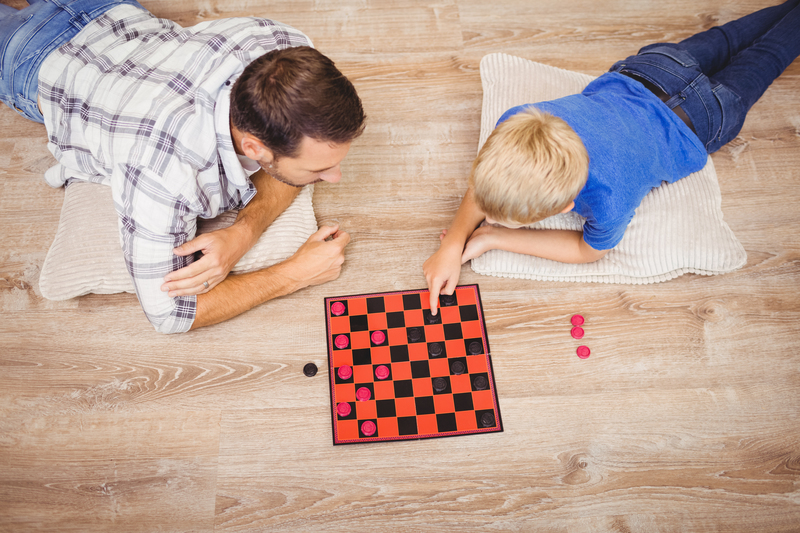The Art of Letting Go: Reduce Stress by De-cluttering
Experiencing stress reduction in today's fast-paced world may seem elusive. However, embracing the art of letting go and reducing the mess in your life through decluttering can be a transformative solution. By removing unnecessary possessions or mental baggage, you create space for tranquility--both around you and within. This article will delve deeply into the connection between decluttering and stress reduction, explore practical techniques, and reveal how letting go can be your gateway to a calmer, more meaningful existence.
Understanding the Relationship Between Clutter and Stress
Clutter creeps in gradually. A stack of magazines here, a pile of unworn clothes there, and unfinished paperwork everywhere. But what begins as mild disorganization can swiftly escalate into a source of constant irritation. Studies have shown a strong correlation between clutter and increased stress. But why is this?
Psychological Impact of Clutter
- Visual Overload: Clutter bombards our senses with excessive stimuli, overwhelming our ability to focus and process information.
- Constant Reminders: Piles of unfinished tasks, neglected belongings, or messes act as visual cues for everything you "should" have done, fueling guilt and anxiety.
- Lack of Control: Clutter can foster feelings of helplessness, making it seem as if your environment is controlling you, instead of the other way around.
- Barriers to Relaxation: Relaxation becomes difficult when disorganization looms. For many, it's tough to retreat to an untidy bedroom or kitchen and truly breathe easy.
Research from the Person-Environment Fit Theory suggests our surroundings profoundly affect our emotions. De-cluttering, therefore, is much more than cleaning up--it's about reclaiming mental peace.

What Does It Mean to Let Go?
The phrase "letting go" can connote many things: releasing old emotions, surrendering control, or, in this context, releasing unnecessary material possessions. When we de-clutter, we learn to detach from objects that no longer serve us, making room for clarity and joy.
But letting go isn't easy. We form emotional attachments to our possessions--some are keepsakes, some "just in case" items, and others evoke past memories. Yet, at its core, the art of letting go is about valuing space, peace, and purpose over possessions.
Signs It's Time to Let Go
- You feel stressed or overwhelmed upon entering a room.
- You spend too much time cleaning or searching for lost items.
- Your home doesn't feel restful - it feels chaotic.
- Items in your space no longer serve a meaningful purpose.
- You notice emotional weight attached to certain items or areas.
How Decluttering Reduces Stress: The Science
According to numerous psychological and neurological studies, de-cluttering promotes a calmer mind and a healthier body. Here's why:
- Reduced Cortisol Levels: A 2010 study published in the Personality and Social Psychology Bulletin demonstrated that women who described their homes as cluttered had elevated cortisol (stress hormone) throughout the day compared to those who described theirs as restful and restorative.
- Enhanced Decision-Making: A tidy environment reduces the mental fatigue associated with constant, micro-decisions prompted by visual chaos.
- Better Sleep: A decluttered bedroom leads to improved sleep quality, as demonstrated by research from the National Sleep Foundation. Less clutter means fewer distractions and lower stress at bedtime.
- Increased Productivity: Organizing your space increases focus, allowing you to work or enjoy leisure time more effectively and with less distraction.
- Boosted Emotional Wellbeing: Letting go of unwanted items can bring a sense of accomplishment and lightness, freeing up emotional bandwidth for more fulfilling pursuits.
The cumulative effect? A powerful reduction in stress and a renewed sense of agency over your environment and emotions.
Practical Steps to Begin the Decluttering Journey
De-cluttering to reduce stress need not be overwhelming. Here's a structured approach to begin the process and make it sustainable:
1. Set Clear, Attainable Goals
- Decide which spaces need attention most (e.g., your bedroom, kitchen, workspace).
- Set a time limit for each session--15 to 30 minutes per day can work wonders.
- Choose to focus on categories (clothes, papers, books) or areas (drawers, shelves).
2. Sort Items Thoughtfully
- Keep: Items that are genuinely useful or spark joy.
- Donate/Sell: Items in good condition that can benefit others.
- Recycle/Discard: Broken, outdated, or useless belongings.
As you handle each item, ask yourself: Does this contribute to my life, or does it weigh me down?
3. Create Organized Spaces
- Designate a home for every item. This makes tidying faster and more intuitive.
- Store frequently-used items within easy reach to minimize daily stress.
- Use boxes, baskets, or dividers to avoid future clutter buildup.
4. Maintain Your Progress
- Adopt a "one in, one out" rule: new items are only acquired if one existing item is removed.
- Set aside regular decluttering time (weekly or monthly) to prevent clutter from creeping back.
- Share your journey with family or friends to stay motivated.
The Minimalist Approach: Living with Intention
Minimalism is a popular extension of de-cluttering, focusing on living with less but better. It's not about deprivation--it's about intentionality. When you reduce the physical noise in your environment, you create space for what matters most.
- Prioritize experiences and relationships over things.
- Curate your possessions to reflect your values and dreams.
- Let go of items, habits, and even relationships that hold you back.
Those who embrace minimalism often report heightened gratitude, lower stress levels, and a fresh sense of purpose and freedom.
Famous Decluttering Philosophies
- Marie Kondo's "KonMari Method": Keep only what
sparks joy . Tidy by category, not location, and give thanks to each item before parting with it. - The Minimalists: Focus on what adds value and let go of everything else.
- Swedish Death Cleaning: Mindfully reduce your belongings as a gift to loved ones and yourself, focusing on keeping life simple.
De-cluttering Beyond the Physical: The Mind and Heart
True decluttering extends beyond physical possessions. Emotional clutter--unresolved anger, worry, regret--can be just as burdensome as a messy room. Decluttering your mind and heart is vital for holistic stress reduction.
How to Declutter Mentally and Emotionally
- Practice Mindfulness: Stay present. Accept your feelings without judgment and let go of thoughts that no longer serve you.
- Journaling: Write down your worries, expectations, or grudges. Seeing them on paper can help you process and release them.
- Digital De-clutter: Organize your files, clean up your inbox, and mute overwhelming notifications for mental clarity.
- Set Boundaries: Learn to say no and release obligations that lead to chronic stress.
A holistic approach to the art of letting go integrates both physical tidying and emotional liberation, deepening your journey toward serenity.
Myths and Challenges About Decluttering
Myth: "De-cluttering means throwing everything away."
Truth: De-cluttering is about intentional choices, not ruthless purging.
Myth: "I need a huge block of time to start decluttering."
Truth: Even 10 minutes a day of focused effort can create noticeable change over weeks.
Common Obstacles
- Overwhelm at the size of the task
- Sentimental attachments
- Guilt around discarding gifts
- Uncertainty about where to begin
The key is to start small, celebrate victories, and remind yourself of the stress-reducing benefits each step brings.

Lasting Benefits: Life After Letting Go
Once you master the art of letting go through de-cluttering, the benefits extend far beyond a tidy home:
- Improved focus and creativity
- Enhanced daily productivity
- Increased peace and relaxation at home
- More meaningful relationships (spatial and emotional space to connect)
- Heightened self-discipline and confidence
Letting go is not a one-time event, but a lifelong habit with the power to continually rejuvenate your mind, body, and spirit.
Conclusion: Embrace Decluttering as Self-Care
The art of letting go, particularly through intentional de-cluttering, is one of the most powerful ways to reduce stress, nurture well-being, and invite harmony into your daily life. Whether you're seeking clarity, looking for space to breathe, or simply yearning for a fresh start, decluttering can be your catalyst for holistic transformation.
Begin today with one drawer, one surface, or even one thought. As you clear away the excess, you'll uncover not just a cleaner space, but a calmer, happier you.
Start Your Journey to Stress-Free Living Now
- Commit to a daily or weekly de-cluttering ritual.
- Reflect on the peace and relief you feel after each step.
- Share your progress with friends or online communities for encouragement and accountability.
The art of letting go is within reach--for your home, your mind, and your heart. Seize it, and feel the burden of stress dissolve, one decision at a time.